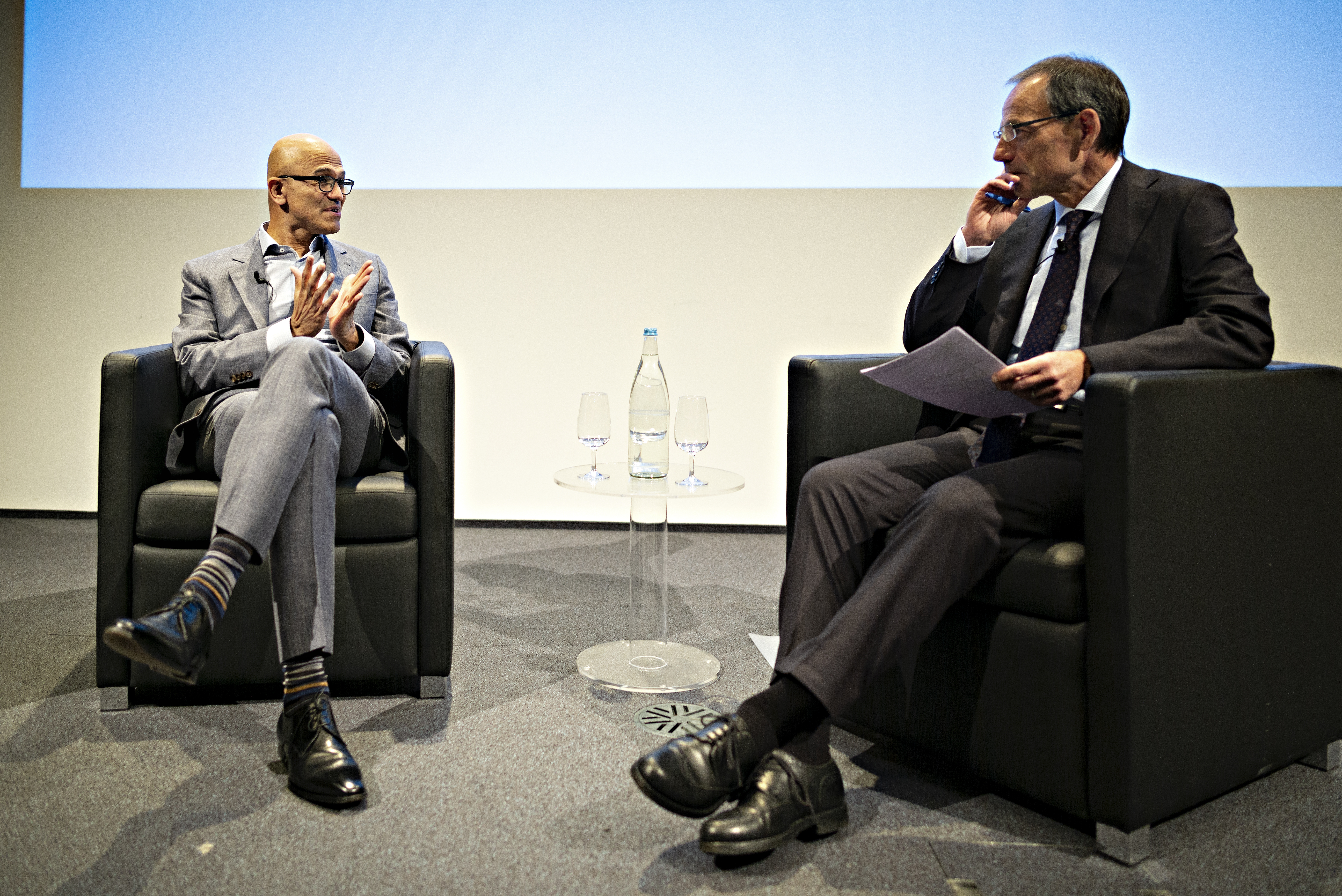In addition to the previously announced Microsoft Cloud from datacenter locations in the Zurich and Geneva regions, Microsoft continues to invest in its long-standing collaboration with the two leading Swiss educational and research institutions ETH and EPFL. In addition to continuing the Swiss Joint Research Center, a long-standing cooperation with ETH and EPFL, Microsoft is collaborating with ETH to build a Mixed Reality & AI Zurich Lab to conduct research in the field of computer vision.
The long-standing collaboration with ETH Zurich and EPF Lausanne is of great importance to Microsoft. At an event in Zurich, Satya Nadella, CEO of Microsoft, said: «For us at Microsoft, it’s not just about the products we create. It’s about our participation in any country to transform that country’s own products so that they’re more competitive.» The results of the research collaboration between both educational and research institutions and Microsoft enable large and small Swiss businesses to be more innovative and to drive their global business success. Ultimately, this is one of the most important goals, Satya Nadella wants to pursue in the individual countries in which Microsoft is operating: «How can we create local innovation? How can we contribute our technology to companies like ABB, UBS, Bühler and Sonova to make it part of their own products – so that they’re more competitive in their global markets? That to me is the true measure of success.»
The Swiss Joint Research Center, a partnership between Microsoft Research, ETH and EPFL that started in 2008, conducts intensive research in the fields of Artificial Intelligence, Mixed Reality, system technologies for data centers and security. By investing in collaborative research with world-class institutions such as ETH and EPFL, Microsoft accelerates scientific progress and enables groundbreaking innovations in all areas. The Swiss Joint Research Center works on seven to ten concrete research projects per research cycle. The next research cycle starts in early 2019 and lasts five years.
Research Laboratory for Mixed Reality and AI in collaboration with ETH
Another investment in Switzerland is the new Mixed Reality & AI Zurich Lab. With a strategic partnership Microsoft and ETH Zurich collaborate closely in the context of this lab to advance fundamental and applied research in the field. The team, headed by Prof. Marc Pollefeys, will initially consist of 15 people involved in research in the field of computer vision, in particular with Microsoft HoloLens. Prof. Marc Pollefeys explains: «Mixed Reality encompasses Virtual and Augmented Reality, that means Mixed Reality combines real and virtual elements and allows the user to interact with them.» Computer vision is a key technology for Mixed Reality and a core element of Artificial Intelligence. Prof. Marc Pollefeys: «Computer Vision enables devices to localize and orient themselves in an environment and to understand the activity of the user. These capabilities are critical for a device like the HoloLens to provide the user with appropriate contextual information.
Security and data protection top priority for Microsoft Cloud
During his visit to Zurich, Satya Nadella also met several representatives of Swiss enterprises and SMEs. A key topic were Microsoft’s plans to open Microsoft Cloud datacenters in 2019 in the Zurich and Geneva regions. Microsoft has built a leading cloud infrastructure with 54 Azure regions across the globe and the broadest set of compliance certifications and programs of any public cloud provider. The Microsoft Cloud, which provides the option to store data in Switzerland, is very popular with companies, authorities and NGOs in Switzerland and abroad.
Cloud as a secure innovation platform, also for Swiss SMEs
Microsoft Switzerland is committed to the topics of innovation, security and education within the framework of the «Contract with Switzerland». For Marianne Janik, Country General Manager of Microsoft Switzerland, the Microsoft Cloud in Switzerland plays a central role: «The majority of Swiss companies have now realized that the cloud is the right innovation platform. The Microsoft Cloud in Switzerland enables our customers to bring Swiss data into the cloud, while meeting their security, compliance and data residency needs.» Marianne Janik sees another major advantage: «The cloud democratizes access to promising technologies. With the Microsoft Cloud in Switzerland, SMEs that are important for Switzerland can also access applications that were previously reserved for large corporations, such as Big Data or Artificial Intelligence. This is a very important innovation driver.»
More creativity, courage, openness and curiosity
«Switzerland has always stood for innovation and progress», Marianne Janik is convinced. «We must now ensure that this remains the case in the future.» For Janik, it is clear that Switzerland can maintain and even expand its leading position in global competition. «The prerequisite for this is that more companies in Switzerland recognize that new technologies offer great opportunities and added value.» According to Janik, transformation must now be driven forward in order to shape Switzerland’s future. «We need to modernise the regulatory framework, modernise training and provide practical further training. First and foremost, however, we need creativity, courage, openness and curiosity when it comes to digital change.»
More Information
- Have a look at the complete conversation of Satya Nadella, Prof. Dr. Lino Guzzella and Prof. Dr. Marc Pollefeys here
- Download the pictures here
Media contact
Tobias Steger, PR & Communications Lead
Microsoft Switzerland
Mobile: +41 (0) 79 744 03 14
E-Mail: [email protected]







